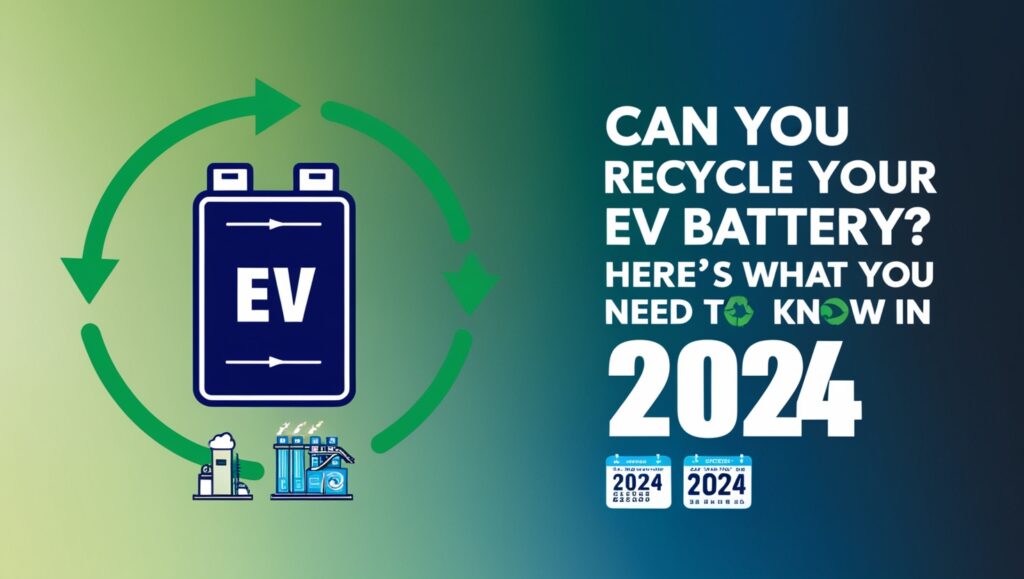Electric vehicles are all the rage, but what happens to the EV battery powering your eco-friendly ride?? Can it be recycled, or does it end up polluting landfills? Dive in and discover the current state of EV battery recycling in 2024. We’ll break down the recycling process, explore your options in India, and answer the burning question: is recycling right for you? Buckle up and get ready to navigate the exciting world of EV battery afterlives!
Understanding EV Battery Recycling: Separating Myths From Reality
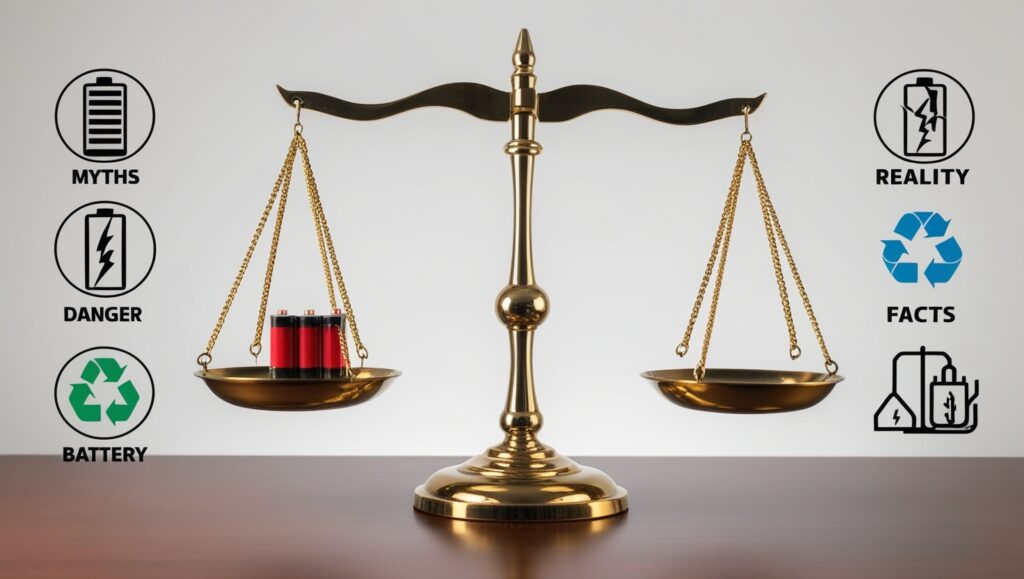
Heard whispers about EV batteries being dumped in landfills or spewing toxic fumes during recycling? Fear not, eco-warriors! We’re here to bust some myths and set the record straight on EV battery recycling in 2024.
Myth #1: EV Batteries Can’t Be Recycled: False! Lithium-ion battery recycling is a rapidly growing industry, recovering valuable materials like lithium, cobalt, and nickel. Up to 95% of these components can be captured for use in new batteries, reducing reliance on virgin materials.
Myth #2: Recycling is Dangerous and Polluting: Not true! Modern recycling facilities use safe and advanced techniques to break down batteries. In fact, recycling reduces the environmental impact compared to mining new materials.
Stay tuned for a deep dive into the actual recycling process and discover how your EV battery can get a second life!
The How-To of EV Battery Recycling: A Step-by-Step Breakdown

Ever wondered what happens to your EV battery after it’s reached the end of the road (on the road, that is)? Unlike changing a flat tire, EV battery recycling isn’t a DIY project. But fret not, curious car enthusiasts! Here’s a peek behind the curtain of this fascinating process:
1.Disassembly: Technicians carefully take apart the battery pack, separating it into its individual components.
2.Component Separation: Advanced machinery isolates valuable materials like lithium, cobalt, and nickel.
3.Material Extraction: Depending on the facility, different techniques like hydrometallurgy or pyrometallurgy are used to extract these materials.
4.Refinery Time: The extracted materials undergo further processing to remove impurities and ensure they meet quality standards for reuse.
5.Back to Life: The recycled materials are then used in the production of new EV batteries, closing the loop and reducing reliance on virgin resources.
This is a simplified breakdown, but it gives you a taste of the intricate dance that happens in an EV battery recycling facility. Stay tuned to learn more about the exciting future of this technology!
Give Your EV Battery a Second Life: Exploring Recycling Options in India
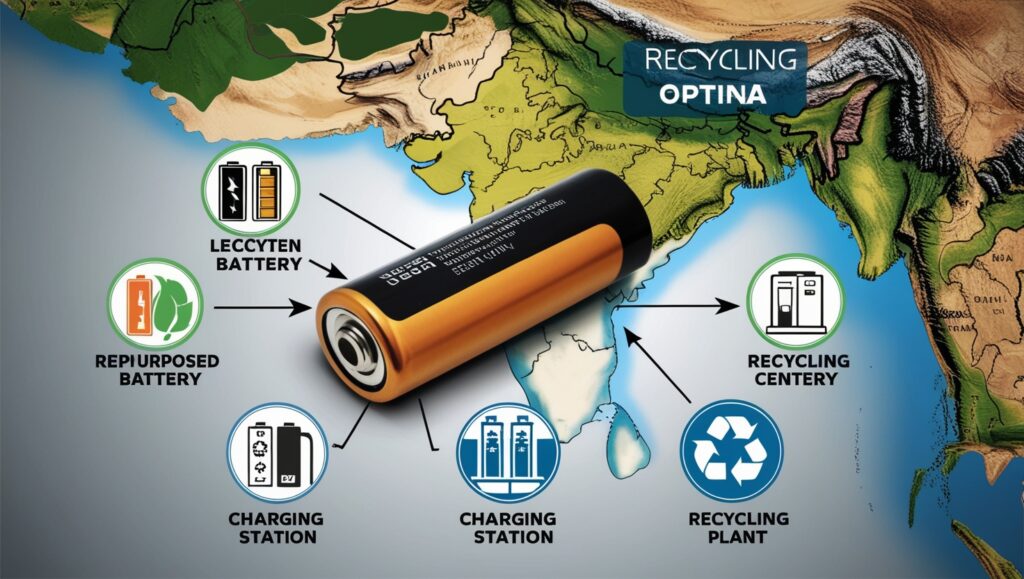
Your trusty EV battery might not be ready for the junkyard just yet! EV battery recycling in India is on the rise, offering a sustainable way to give your battery a second life. But with the industry still growing, navigating your options can feel overwhelming. Don’t worry, we’ve got you covered!
Here are some ways to explore EV battery recycling in India (2024):
1. Check with your car manufacturer: Many car companies are partnering with recycling facilities to offer convenient battery take-back programs.
2. Search for authorized recyclers: Look for companies certified by the Central Pollution Control Board (CPCB) to ensure safe and responsible recycling practices.
3. Explore online directories: Websites like ETORO Recycling or Multicellular list authorized recyclers in your area.
By choosing to recycle, you’re not just helping the environment, you’re also contributing to a more circular economy in India. Stay tuned to learn more about the benefits and considerations of EV battery recycling!
Is Recycling Your EV Battery Right for You? Factors to Consider in 2024
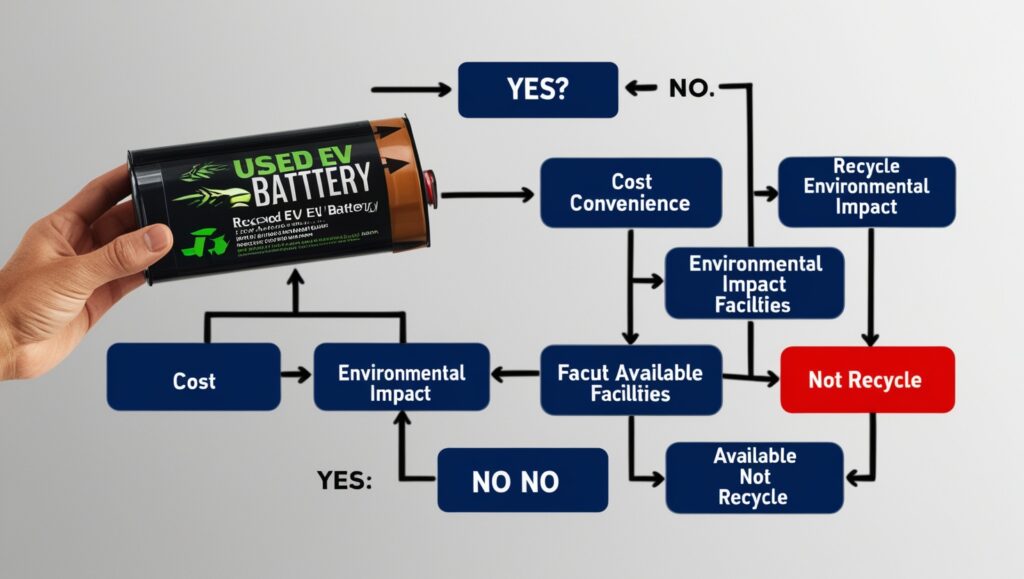
Thinking about giving your EV battery a green goodbye, but not sure if recycling is the best choice? Don’t worry, we’ve all been there!
Here are some key factors to consider in 2024:
1. Battery Health: If your battery still holds a decent charge and meets the manufacturer’s performance criteria, you might be able to hold off on recycling for a while.
2. Recycling Availability: EV battery recycling infrastructure is still growing in India. Check if there are convenient and authorized recycling facilities near you.
3. Potential Costs: While some programs offer free take-back, there might be associated costs for recycling. Weigh this against the environmental benefits.
Remember, recycling isn’t always an immediate option, but it’s the responsible choice for the future. Stay tuned for the next section, where we’ll explore the environmental impact of EV battery recycling and why it might be worth the wait!
The Environmental Impact of EV Battery Recycling: Benefits and Challenges
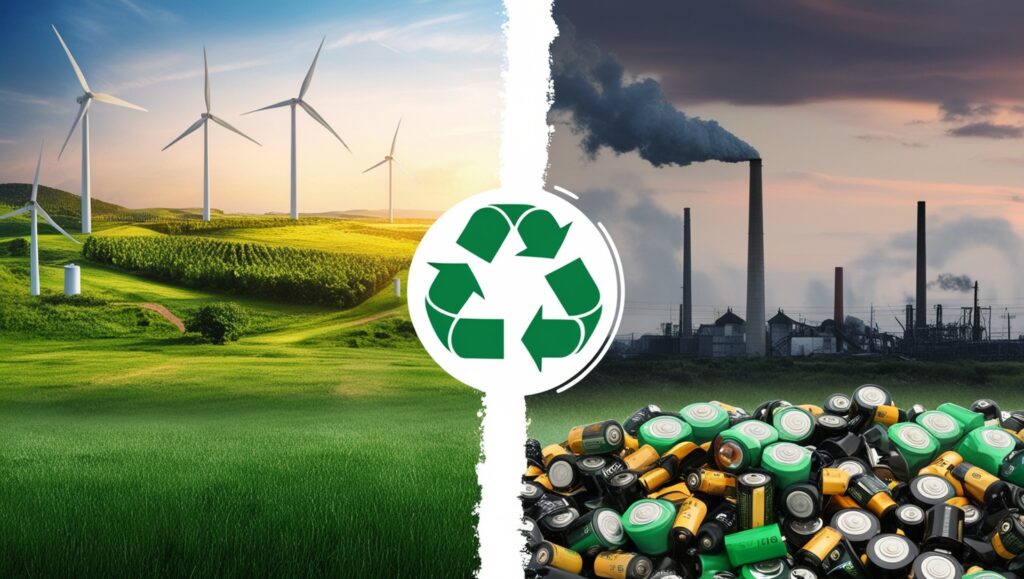
EV battery recycling: hero or villain for Mother Nature? The truth is, it’s a bit of both! Let’s delve into the environmental impact of this growing industry:
Benefits:
1. Reduces reliance on mining: Recycling recovers valuable materials like lithium, which means less digging up pristine land for new resources.
2. Cuts down on pollution: Properly recycled batteries keep harmful chemicals out of landfills, preventing soil and water contamination.
3. Conserves energy: Recycling requires less energy compared to extracting virgin materials, leading to a smaller carbon footprint.
Challenges:
1. The industry is young: Recycling technology is still evolving, and efficiency rates can vary.
2. Energy source matters: The environmental benefit depends on the source of energy used in the recycling process.
3. Safeguarding the future: Ensuring responsible and sustainable recycling practices is crucial to avoid creating new environmental issues.
Despite the challenges, EV battery recycling offers a promising path towards a cleaner future. In the next section, we’ll explore the exciting advancements and predictions for this technology in 2024 and beyond!
The Future of EV Battery Recycling: Advancements and Predictions for 2024 and Beyond
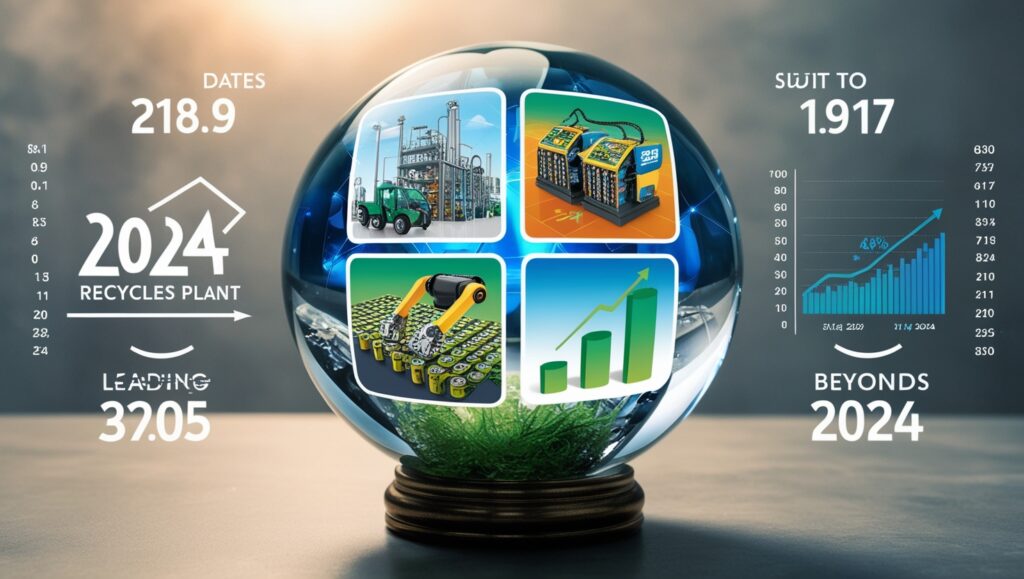
Fasten your seatbelts, EV enthusiasts, because the future of battery recycling is looking bright! With advancements happening at lightning speed, here’s a glimpse of what’s on the horizon for 2024 and beyond:
1. More efficient processes: New technologies like hydrometallurgical techniques promise to recover a higher percentage of valuable materials from batteries.
2. Closed-loop systems: Imagine a world where recycled materials are seamlessly used to create new batteries, minimizing waste. This circular economy approach is becoming a reality!
3. Focus on sustainability: Research is underway to develop cleaner and more energy-efficient recycling methods, further reducing the environmental impact.
Predictions for 2024:
1. Increased government regulations and incentives to promote responsible EV battery recycling.
2. More car manufacturers offering take-back programs for used batteries.
3. Innovations in battery design that make them easier to recycle.
The future of EV battery recycling is brimming with potential. By embracing these advancements, we can create a cleaner and more sustainable future for electric vehicles and our planet!
Costs Associated with EV Battery Recycling in India: What to Expect in 2024
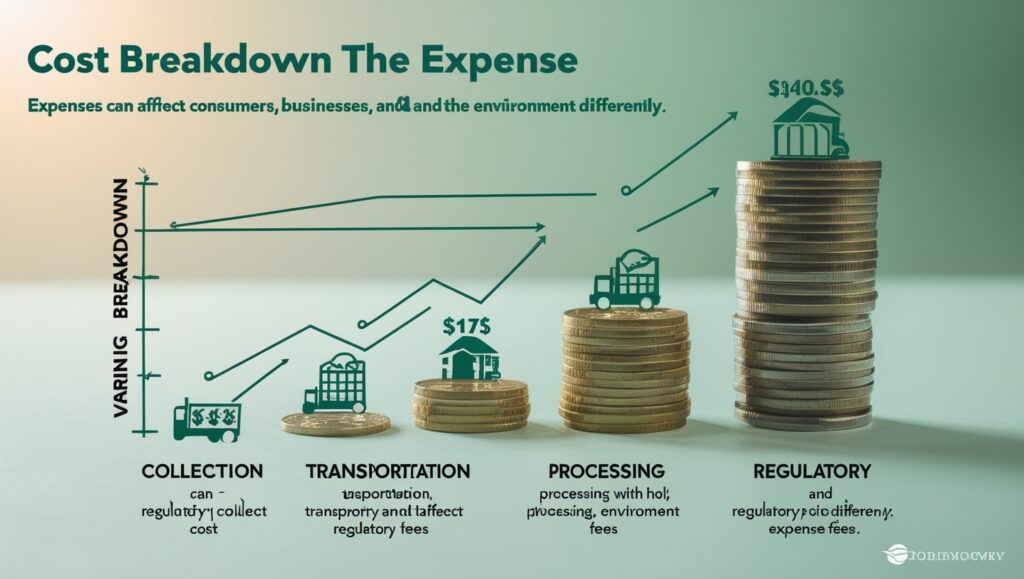
Let’s talk rupees and rupees, shall we? EV battery recycling in India is still a young industry, and the cost picture can be a bit fuzzy. Here’s what you need to know in 2024:
1. Who pays? Currently, the responsibility for EV battery recycling often falls on the manufacturer or importer. This means the cost might already be factored into the price of your car.
2. Free take-back programs: Some car companies are offering free programs to collect used batteries. This is a great option if available to you!
3. Direct recycling costs: In some cases, there might be a fee associated with dropping off your battery at a recycling facility.
Remember, the cost of recycling shouldn’t be the sole deciding factor. EV battery recycling offers significant environmental benefits that go beyond your wallet.
Stay tuned for the final section, where we’ll wrap things up and answer the burning question: is EV battery recycling worth it?
